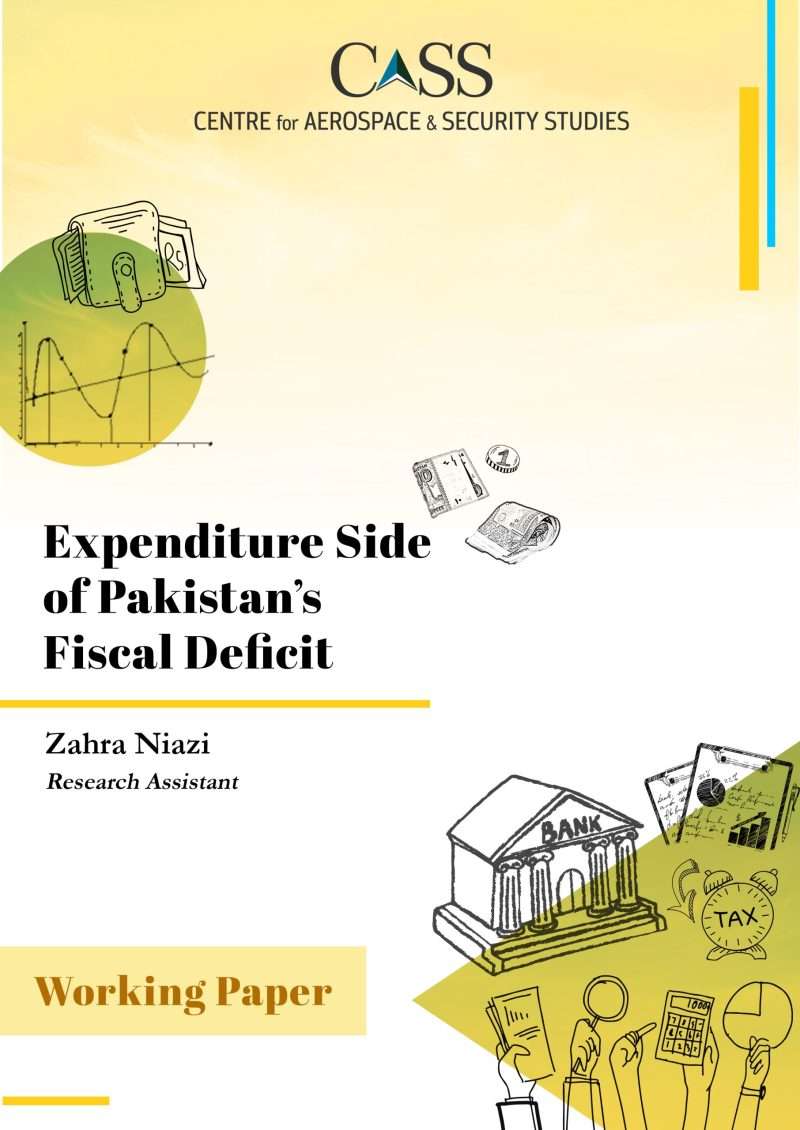To date, much of Pakistan’s fiscal consolidation efforts have focused on the revenue side of the budgetary deficit, while expenditure management has remained relatively neglected. Statistical modeling reveals that increases in both current and development expenditures contribute to a rise in Pakistan’s overall fiscal deficit. A review of the government’s budgetary allocations for FY 2024-25 and the past four fiscal years indicates significant potential for cost savings in government spending. The findings underscore the need to reduce the budgetary burden of mark-up payments through prudent debt management strategies, growth-oriented policies, and a data-driven approach to monetary policy. Furthermore, the study recommends reviewing defence spending, particularly employee-related expenses, to identify potential costsaving opportunities and implementing broad-based power sector reforms to alleviate the fiscal burden of subsidies. It also calls for rationalising expenditures under the Benazir Income Support Program (BISP) by enhancing administrative quality, strengthening monitoring mechanisms, and improving public service delivery. Further, the study suggests downsizing by eliminating or merging government departments and agencies with overlapping functions and closing redundant entities. Comprehensive pension reforms, informed by international best practices, are also recommended. Finally, the study advocates for more equitable allocations under the Public Sector Development Program (PSDP) and for minimising operational inefficiencies in both allocation processes and spending activities.

Share this article

The Extraction Trap
Trump’s declaration to “run Venezuela” after Maduro’s capture is a seeming promise of a sudden cure to Venezuela’s ills. However, it ignores the nation’s terminal diagnosis of a century of plunder. The rhetoric of imminent revival on the basis of the speedy return of international oil capital and the promise of 100 billion US dollars in reconstruction funds made the intervention seem like a unique opportunity.

Future Shield: The Saudi-Pakistan Security Partnership
Although the SDMA does not identify an adversary, effectively functioning as a deterrent, it cannot be viewed in isolation from the Israeli belligerence in the Middle East. Israel’s war against Hamas has expanded beyond the genocide of Gaza; it has bombed the West Bank, Lebanon, Syria, Yemen, Iran, and recently Qatar. Tel Aviv’s campaign under the banners of ‘anti-Semitism’ and ‘terrorism’ has engulfed the whole Middle East in a war-like situation, which has generated new enemies and has deepened the instability of the region.

The Trilateral Shift
On 15 January 2026, the Pakistani defence production minister confirmed that an agreement for a new trilateral defence deal between Pakistan, Saudi Arabia, and Türkiye is in the pipeline, other than the Pakistan-Saudi bilateral deal announced last year.

